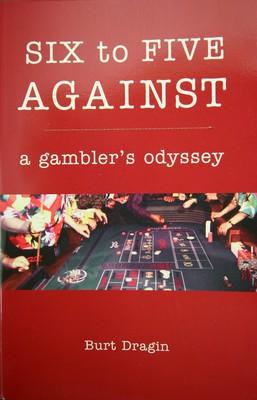Author says he escaped family demon: gambling


Burt Dragin spent considerable time in Las Vegas during the 1950s but never lived in the gambling resort town.
An 8-year-old Dragin started taking frequent “family vacations” from California so his father could indulge in legally what he was having little trouble engaging in illegally around Beverly Hills — gambling.
“My father … always gambled beyond his means,” Dragin said. “Las Vegas was built, initially, on people like my father.”
A journalism professor at Laney College in Oakland, Calif., Dragin discussed his family and the problem of compulsive gambling Friday at the University of Nevada, Las Vegas.
“There is no mystery about those who, like Steve Wynn, are inclined toward owning the house,” Dragin read from his autobiography, “Six to Five Against: A Gambler’s Odyssey.”
“It’s guaranteed gravy. You walk around with a frozen smile and watch the suckers crushed by the immutable odds.”
How widespread compulsive gambling is in the country depends on who you ask, according to Dragin.
He said that most neutral studies say approximately 5 percent of the population, or 11 million, suffer from compulsive gambling. However, Dragin added that the American Gaming Association puts the number at less than 1 percent.
Emphasizing that he is not a moralist, he said the gaming industry is not contributing enough money toward research and treatment programs to address issues that helped build lavish Strip resorts.
Following his compulsive gambling father into the casino on that first trip, Dragin was quickly wowed by colorful machines spilling coins into the happy, waiting arms of people who were gambling in air-conditioned comfort.
“Unbeknownst to me, a habit had taken root,” he wrote in his 2005 autobiography.
Dragin said along the way his own gambling obsession turned into an obsession with gamblers: The good, the bad and the addicted.
“Why do rational people continue to touch the flame?” asked Dragin, almost as a central theme to his research for the past couple of decades. “Why do some gamblers become addicted?”
In the Dragin household, Dec. 25 didn’t mark Christmas but the day before opening day of the Santa Anita horse racetrack.
Although the son never gambled to depths of devastation of the father — a lost house, lost businesses, marriage separation for three years and arrest — Dragin said he danced a fine line.
But the cautionary tale of watching his father, and the security of a job as a journalist and a professor, enabled Dragin to “binge gamble” but back off before losing everything.
Dragin’s brother, however, was affected differently and remained a recreational gambler viewing the casinos as entertainment.
For now, Dragin is able to keep his gambling demons at bay only playing in a Thursday poker game with preset limits at a friend’s house.
“When it’s over, it’s over,” he said.












